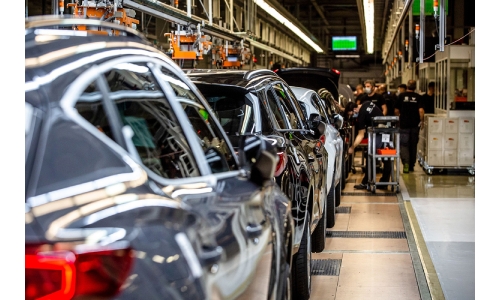Bahrain automobile retailers struggling to deliver new cars on time due to global chip shortage crisis
TDT | Manama
The Daily Tribune – www.newsofbahrain.com
Acute microchip shortages across the global automobile manufacturing markets are causing a huge delay in the delivery of cars in Bahrain.
Sources within the retail car segment told The Daily Tribune that the “delivery delay” is unprecedented with the waiting period reaching as high as two-three months for some cars.
“Bahrain is a small market for automobiles and it remained unaffected when the microchip shortage crisis first affected all big markets a little over a year ago.
But, now the crisis has trickled down to Bahrain and we face huge delays in delivery of cars to our customers,” a source explained.
He added that demand for cars also increased since the beginning of the New Year, compounding the issue.
The shortage cost the global auto industry about $210 billion in lost revenue in 2021, according to many estimates.
After being hit hard, the auto segment was recovering from the pandemic shock when the chip crisis threatened the recovery cycle and now it is prolonging, a manager with a leading car retailer in Bahrain, told The Daily Tribune, on grounds of anonymity.
“Initially, the chip crisis was taken lightly by the auto sector. But now it has become wider and deeper than initially considered,” he said.
It is estimated that the 11.3 million units of production were cancelled last year because of a chip shortage. The Daily Tribune visited many car showrooms in Bahrain only to find vacant display places offering a striking sight.
According to forecasts, the impact will continue in 2022 and 2023 with the production of seven million units and 1.6 million units getting cancelled respectively.
According to leading auto news site Motortrend, the crisis dates to March 2020 when the pandemic forced automakers to shut down plants and temporarily halt orders from suppliers.
“At the same time, the electronics industry faced increased demand for cell phones, televisions, computers, games, and home appliances from customers abiding by stay-at-home orders.
Chipmakers rerouted their supply to the electronics industry, which also showed a willingness to pay more for silicon wafers. “When the auto industry came back online faster than expected in the summer of 2020, it found the chips needed weren’t available and suppliers were content to keep their more lucrative contracts with others.
Big orders can’t be met quickly; it takes about three months to make even the simplest of semiconductors. The auto industry only represents five per cent of the chip industry, so it lacked much clout to get what it needs.”
Related Posts

